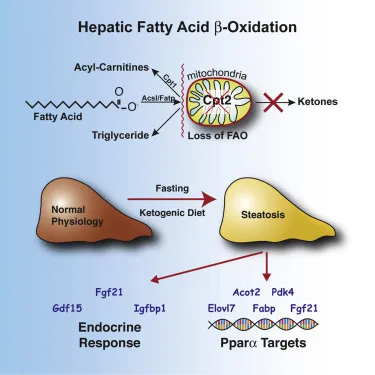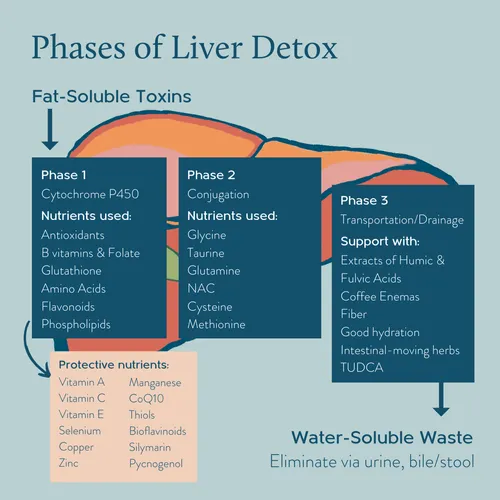Fat oxidation is a crucial process in the human body that plays a significant role in maintaining overall health and well-being. When it comes to liver health, fat oxidation is particularly important as it can have a direct impact on the function and health of the liver. In this article, we will explore the relationship between fat oxidation and liver health, discuss the factors that can influence fat oxidation, and provide tips on how to optimize fat oxidation for better liver health.
The liver is one of the largest organs in the human body and is responsible for a wide range of functions, including detoxification, metabolism, and the production of essential proteins. One of the key functions of the liver is the regulation of fat metabolism, which involves the breakdown of fats into fatty acids and their subsequent oxidation for energy production. When fat oxidation is impaired, it can lead to the accumulation of fats in the liver, which can result in a condition known as fatty liver disease.
Fatty liver disease is a common condition that affects millions of people worldwide and can have serious consequences for liver health. There are two main types of fatty liver disease: non-alcoholic fatty liver disease (NAFLD) and alcoholic fatty liver disease (AFLD). NAFLD is typically associated with obesity, insulin resistance, and metabolic syndrome, while AFLD is caused by excessive alcohol consumption.
Fat oxidation plays a crucial role in preventing the accumulation of fats in the liver and maintaining liver health. When fats are not properly oxidized, they can accumulate in the liver and lead to the development of fatty liver disease. In addition, impaired fat oxidation can also contribute to the development of insulin resistance, inflammation, and oxidative stress, all of which can further damage the liver and lead to liver disease.
There are several factors that can influence fat oxidation and impact liver health. These include diet, exercise, genetics, and lifestyle factors. A diet high in saturated fats, trans fats, and refined carbohydrates can impair fat oxidation and increase the risk of fatty liver disease. On the other hand, a diet rich in healthy fats, such as omega-3 fatty acids, can help to promote fat oxidation and protect the liver.
Regular exercise is also important for optimizing fat oxidation and maintaining liver health. Exercise can help to increase the rate of fat oxidation, improve insulin sensitivity, and reduce inflammation, all of which can benefit liver health. Genetics can also play a role in fat oxidation, with some people being more predisposed to impaired fat metabolism than others.
In addition to diet and exercise, lifestyle factors such as smoking, alcohol consumption, and stress can also impact fat oxidation and liver health. Smoking and excessive alcohol consumption can impair fat oxidation and increase the risk of fatty liver disease. Chronic stress can also disrupt fat metabolism and contribute to liver damage.
To optimize fat oxidation and promote liver health, it is important to adopt a healthy lifestyle that includes a balanced diet, regular exercise, and stress management. A diet rich in fruits, vegetables, whole grains, lean proteins, and healthy fats can help to support fat oxidation and protect the liver. Regular physical activity, such as aerobic exercise and strength training, can help to increase the rate of fat oxidation and improve overall liver health. Stress management techniques, such as mindfulness meditation, yoga, and deep breathing exercises, can help to reduce stress and support fat metabolism.
In addition to lifestyle changes, there are also supplements that can help to support fat oxidation and promote liver health. These include omega-3 fatty acids, green tea extract, and resveratrol, all of which have been shown to support fat metabolism and protect the liver. It is important to consult with a healthcare provider before starting any new supplements to ensure they are safe and appropriate for your individual needs.
In conclusion, fat oxidation plays a crucial role in maintaining liver health and preventing the development of fatty liver disease. By adopting a healthy lifestyle that includes a balanced diet, regular exercise, and stress management, you can optimize fat oxidation and support liver health. If you have concerns about your liver health or are at risk for fatty liver disease, it is important to consult with a healthcare provider for personalized recommendations and guidance.
FAQs:
1. What are the symptoms of fatty liver disease?
– The symptoms of fatty liver disease can vary depending on the type and severity of the condition. Common symptoms include fatigue, abdominal pain, swollen abdomen, and yellowing of the skin and eyes (jaundice). However, some people with fatty liver disease may not experience any symptoms at all.
2. How is fatty liver disease diagnosed?
– Fatty liver disease is typically diagnosed through a combination of physical exams, blood tests, imaging tests (such as ultrasound or MRI), and liver biopsy. Your healthcare provider may also ask about your medical history, lifestyle factors, and family history of liver disease.
3. Can fatty liver disease be reversed?
– In many cases, fatty liver disease can be reversed through lifestyle changes, such as adopting a healthy diet, exercising regularly, and avoiding alcohol and smoking. However, it is important to consult with a healthcare provider for personalized recommendations and guidance.
4. Are there any medications that can help with fatty liver disease?
– There are currently no specific medications approved for the treatment of fatty liver disease. However, certain medications may be prescribed to manage underlying conditions, such as diabetes, high cholesterol, or obesity, which can contribute to fatty liver disease.
5. How often should I have my liver function tested?
– It is recommended to have your liver function tested regularly, especially if you have risk factors for liver disease, such as obesity, diabetes, or excessive alcohol consumption. Your healthcare provider can advise you on how often you should have your liver function tested based on your individual risk factors and health status.


